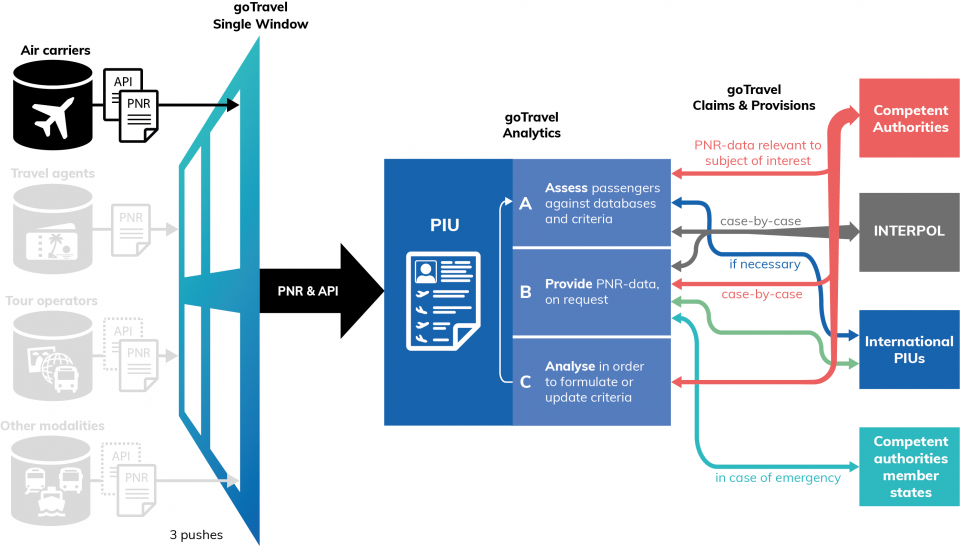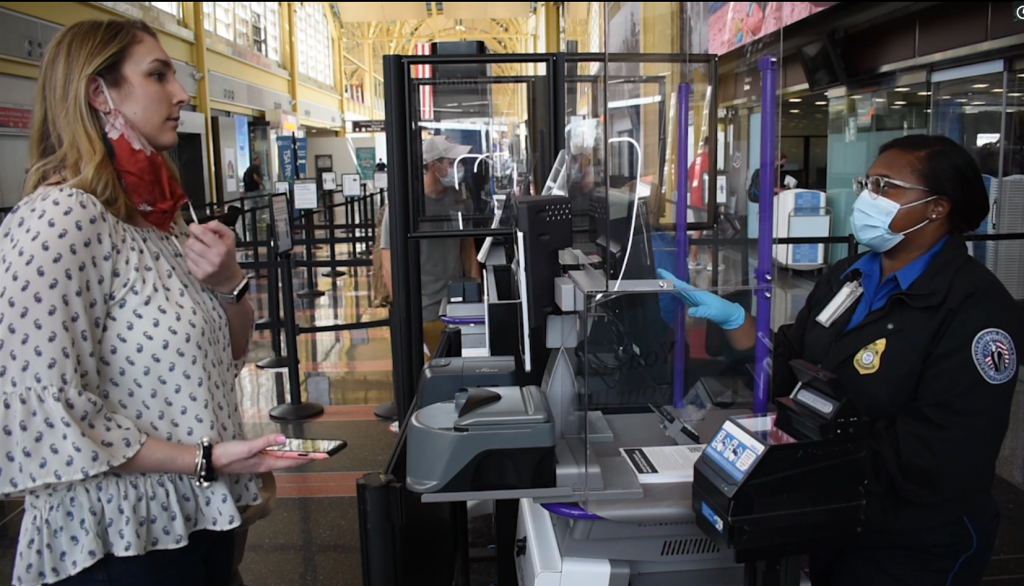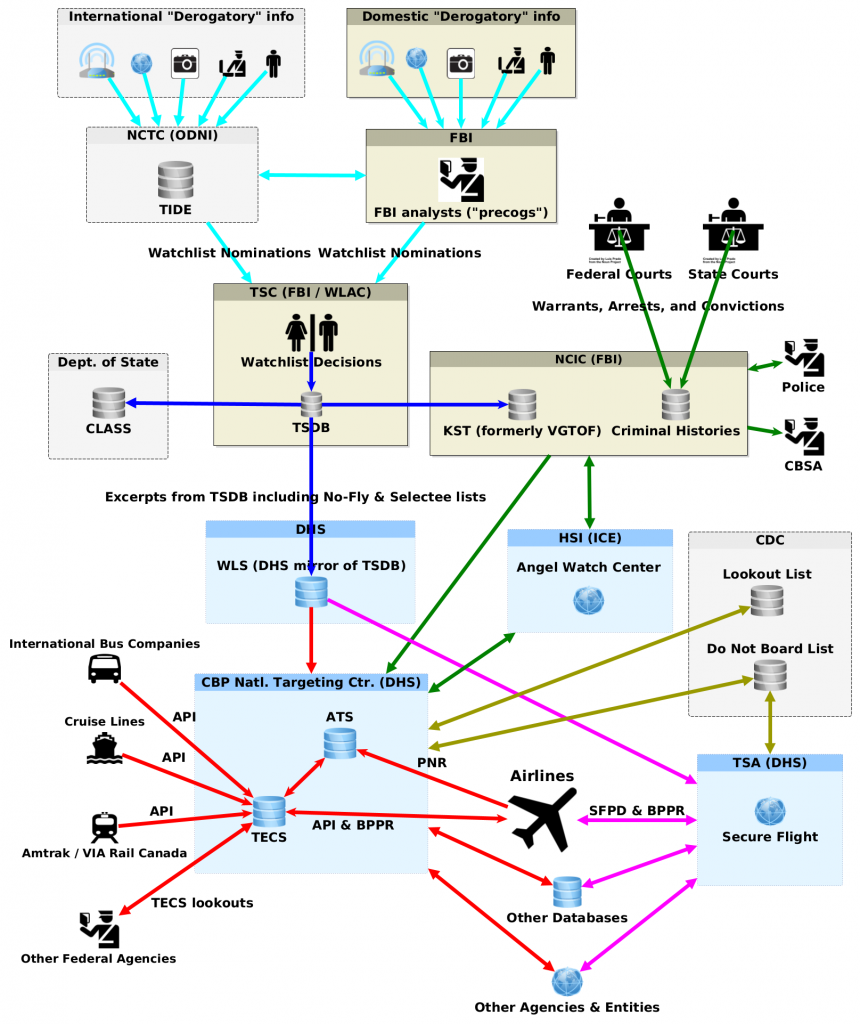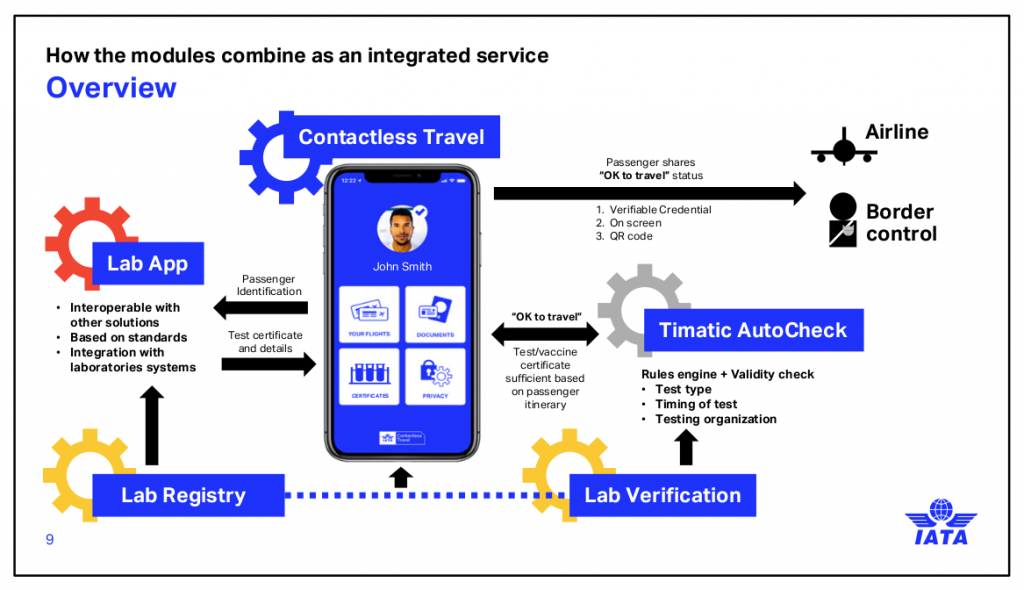4th Circuit panel rejects rights to travel and to due process
In one of the worst court decisions on the right to travel since Gilmore v. Gonzales, a three-judge panel of the 4th Circuit Court of Appeals has reversed the decision of a U.S. District Court in the case of Elhady v. Kable that the U.S. government’s system of extrajudicial administrative blacklists (euphemistically and inaccurate called “watchlists” although the consequences for the people who are listed include much more then merely being “watched”) is unconstitutional.
The decision comes in a class-action lawsuit brought on behalf of blacklisted Muslim American travelers in 2018 by the Council on American Islamic Relations (CAIR). It folows a disturbing trend of decisions in similar cases by courts in the 6th Circuit and the 10th Circuit.
According to Gadeir Abbas, the CAIR attorney who has led the national campaign of lawsuits (many others of which are still pending) against post-9/11 blacklists, CAIR plans to petition for “rehearing en banc” by the 4th Circuit Court of Appeals:
A three-judge panel on the Fourth Circuit reversed a historic U.S. District Court decision that declared the entirety of the watchlist unconstitutional. In doing so, the judges ignored the dire consequences experienced by American citizens placed on the watchlist and took a dim view of what the Constitution requires. We are disappointed in this decision, but we remain undeterred. The fight is not over. CAIR will now ask the entire Fourth Circuit to review the case.
The 4th Circuit panel gets off on the wrong foot by declaring that it is reviewing a challenge to a “system vital to public safety”, despite the absence of any finding by the District Court to that effect or any evidence in the record to support such a claim. In fact, watchlists/blacklists are based on anything but actual dangerousness. If an individual were actually demonstrably dangerous, the government could and should either arrest them or apply to a court for an injunction restricting their dangerous actions. But the government has never done that with any of the people it has blacklisted.
The 4th Circuit panel opinion is dismissive of almost every aspect of the right to travel or of due process. It finds that government-imposed travel delays of hours or perhaps even days aren’t sufficient interference with the right to travel to constitute a legally-cognizable infringement of the right to travel, and that denial of air transport is Constitutionally insignificant because, “Plaintiffs can travel internationally by boat.”
Despite acknowledging that the blacklists/watchlists were “created by executive order” and not by any Congressional action, and that the Terrorist Screening Center “receives around 113,000 nominations annually and around 99% are accepted,” the 4th Circuit panel finds that no judicial review of these decisions is necessary.
Relying on an outdated history of entry and exit procedures when an intercontinental journey took weeks, and a delay of hours or days would only lengthen the journey time by a small percentage, the 4th Circuit panel brushes off the detention (in many cases at gunpoint), interrogation, and search of the plaintiffs. “Delays and inconveniences at the borders are… as old as the nation itself…. The experiences alleged by plaintiffs do not rise to the level of constitutional concern…. Given the government’s broad power to control movement across the nation’s borders, the burdens experienced by plaintiffs are not infringements of ‘liberty’ within the meaning of the Due Process Clause.”
We join CAIR and the many friends of the court who filed briefs in support of the plaintiffs in Elhady v. Kable in looking forward to en banc rehearing and reversal of this ill-founded decision.
Update: Petition for rehearing en banc, Order denying petition for rehearing



